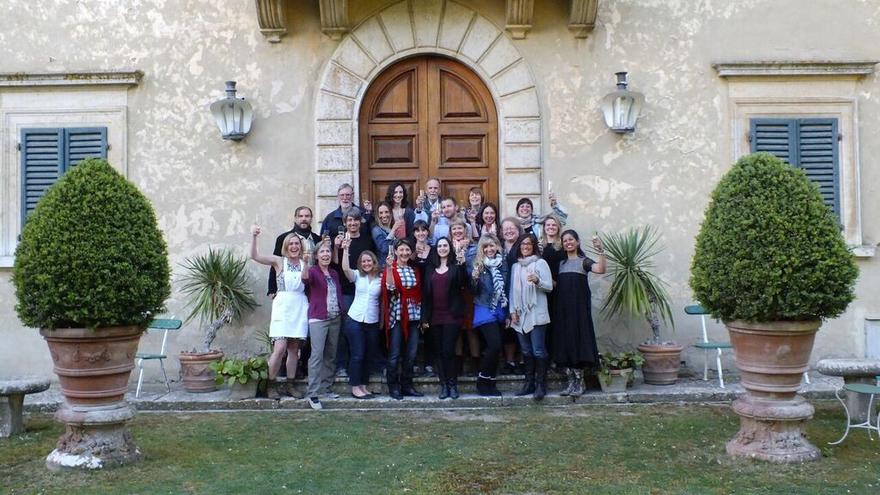Find your writing community.

Your dream about writing may have started as a whisper. It comes to many writers as a feeling first, or a wish. And every delicate filament of your dream will be matched by ten shouts of doubt the moment you try to make it real. I'm guessing you've experienced this already.
You know those negative voices come from external places, like parents, co-workers or (gasp!) even teachers. They can be cultural or societal. But the very worst of them can sound like they're coming from inside your own head.
Wherever the killjoy thoughts came from, you need to switch them out if you're going to write! Discredit the naysayers by overriding them with smart, positive voices.
Get yourself some good influences. Find a writing community you trust: even if it's just the community on your bookshelf.
If you dream about writing, connect with other people who believe in the same dream.
Because for an impossible thing (like a book!) to become real, you must believe you will write it. And finding the right crowd to hang out with will help with that.
Community is one of the main reasons writers attend writing classes. I know this from personal experience, and from everything I've heard from the writers I've worked with. Simply being with other writers -- those unique, extraordinary people who not only understand what you're trying to do, but also understand why and how you do it -- gives you a massive boost.
When you spend time with other people who have the same energy that you do about writing, you lift each other up.
You can get that lift in many ways, but it does mean consciously putting yourself in a place that will be hospitable for your writing.
This can mean re-reading a book you love, listening to the New Yorker Short Story Podcast, sitting at a table with a writer friend, doing timed writing exercises together, or attending a writing conference or festival.
It can also mean taking a writing class.
I started teaching because I'm a connector, at heart. I wanted to create a supportive place for writers to live and dream, and I wanted to introduce writers to other writers so they don't feel like aliens. The Story Course provides a community where writers can flourish and expand. And I invite special guest authors to guest lecture in The Story Intensive, because I want my students to get in with solid, trustworthy influences!
In The Story Intensive Master Classes, students hear George Saunders talk about how long it took him to understand what his own story was about. They hear Margaret Atwood compare her writing practice to the pain of diving into a freezing cold lake. They hear Karen Joy Fowler talk about how she struggles to make the time to write.
Often, writers are the ones who are best on the sidelines: watching and observing everyone else in action. That's our natural habitat. What we observe becomes our material. We know things about people because we are paying attention to the bigger patterns of human life.
Heads up, introvert over there: I know you're not a joiner. But I'm telling you, even if you work alone, it is a good thing to occasionally touch base with others in your species.
You are not alone. You are a writer, just like these writers. You are actually sitting at the same table. You are a part of a larger dialogue.
Connecting with other writers is such an important part of your writing life.
In what ways have you found your writing community? I'd love to hear about it in the comments below.

Photo: Sarah at Lemon Tree Retreat in Tuscany. These people used to be strangers. Then they wrote and talked about writing for two weeks, together. Now, this is a writing community.

18 comments
Leave a comment